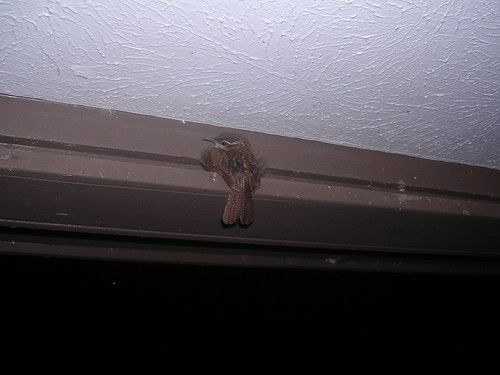Today I heard it again. "Our software team is very passionate, and we work seventy hours a week". Well, I don’t believe it. Besides, its not a good idea to try to consistently work seventy hours a week.
I once read a story about a woodcarver that decided to work late to finish carving a detail in the face of a statue he had been working on for months. Even though he had worked a full day and was tired, he wanted to finish just this one last thing before he left for the day. His chisel was dull and wasn’t cutting well, so he pushed a little harder and suddenly cut out a large gouge that ruined the entire piece. After that experience, he vowed never to do the last thing. (If you know the origin of this story please help me with the attribution).
Knowing the story didn’t stop me from doing the last thing until one day after adding some functionality, I broke the entire software build. I called my wife around 4 p.m. and told her I’d be an hour late. Then I loaded up the debugger and started stepping through the code. It seemed like in just a few minutes she was calling me back asking where I was. I looked at my watch, it was 8 p.m. That was literally, the 13th hour. I was tired and making mistakes. So I went home, and the next morning, I solved the problem in the first 20 minutes I was at work. The power of the subconscious I suppose. After that, I vowed, "Never do the last thing".
If you are a manager, ask yourself, do you really want someone carving on the face at the end of the day ? Yet in the software business there is almost a cult-like ethos of the endless string of all nighters. I suppose this isn’t limited only to the software industry, but that’s why we are afraid of the hospital.
I’m not impressed when creative people claim they work seventy hours a week, consistently. For that to be true, you have to count a lot of non-productive time like reading emails, lunches and dinners, overnight travel, commuting, meetings you don’t need to be in, smoke and joke at the water cooler, browsing, blogging, etc. We’d all be better off if we were more honest about what work is and how many hours we really "work", because then we’d have more realistic expectations of the people we lead. I estimate that in a solid eight hour workday, if you can average five hours of quality work, you’re doing well. In fact, it is a significant challenge for managers to create a work environment that allows engineers to have those five hours free of meetings and other interruptions.
In the mid nineties I worked for a company that implemented policies that did allow at least five solid hours a day. The first policy change was the concept of a time bank. No sick days, or vacation. If you didn’t log 40 hours at work, the difference came out of your time bank. The policy was based on two observations backed by data. A large number of exempt employees were not even physically present 40 hours a week, and a small minority was working excessive hours and had a higher voluntary attrition rate. In addition, our customer had begun to adjust proposals for future work based on historical actuals. So "free" overtime wasn’t free anymore, it was a handicap. At the same time, the company instituted the concept of core hours, from 9 a.m. to 3 p.m., and required that you notify your supervisor if you weren’t going to be available during core hours. Meetings were also limited to core hours only and required 24 hour notice if it wasn’t a standing meeting. Finally, managers were held accountable for earned value relative to the hours expended. Productivity actually increased with these policy changes. Its easy to understand why. There were less meetings, but everyone was there and on time. There were less mistakes, because people weren’t tired. Our ability to stay on schedule improved because we were measuring. Everyone was happier.
I believe when we create a culture that pressures people to pretend that they work the mythical seventy hours a week, we actually get much less. Why is it that people that claim they work seventy hours a week never finish anything early ? Its simple, they didn’t plan to finish early. And that’s the crux of the whole matter. Teams that fall into this trap of kidding themselves that everyone is working a seventy hour week are poorly managed. That’s my genuine verdict.


